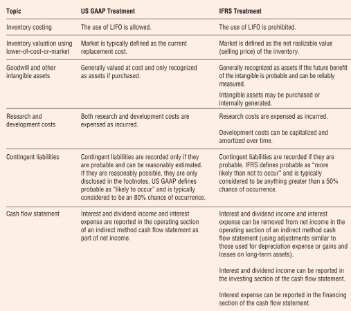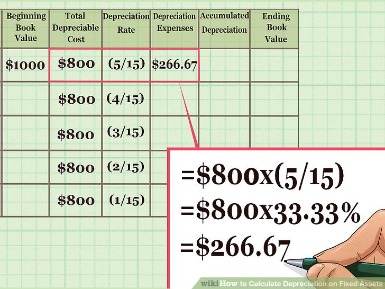
Proficiency in using financial software and excellent communication skills to explain financial concepts in understandable terms are also crucial. Some positions may require Accounting Consultants to have a master’s degree in accounting or business administration with a focus on finance. They might have led projects, managed teams, or provided high-level consulting for businesses. In addition to these tasks, Accounting Consultants may also be involved in other areas of financial management, such as budget planning, risk assessment, and investment analysis.
Balancing Risk and Compliance
A good Accounting Consultant should have a strong analytical mind to interpret complex financial data. Deloitte refers to one or more of Deloitte Touche Tohmatsu Limited, a UK private company limited by guarantee (“DTTL”), its network of member firms, and their related entities. DTTL (also referred to as “Deloitte Global”) does not provide services to clients. In the United States, Deloitte refers to one or more of the US member firms of DTTL, their related entities that operate using the “Deloitte” name in the United States and their respective affiliates.
Staff Accountant
They must have excellent analytical skills and extensive knowledge of the accounting principles to perform accounting duties that would minimize the financial risk of the company. A senior staff accountant provides strategic recommendations to prevent overspending and increase efficiency across all departments to drive more revenues and profits. In addition to the difference in salary, there are some other key differences what is the difference between vertical analysis and horizontal analysis worth noting. The Editorial Team at InterviewGuy.com is composed of certified interview coaches, seasoned HR professionals, and industry insiders. With decades of collective expertise and access to an unparalleled database of interview questions, we are dedicated to empowering job seekers. Our content meets real-time industry demands, ensuring readers receive timely, accurate, and actionable advice.
Senior Accountant (Part-Time)

We’re now vying for talent with Silicon Valley tech companies, life science companies, innovative startups and established corporations across various industries. They can handle work pressure effectively by adopting effective time management strategies, delegating tasks where possible, and employing stress management techniques. These designations boost one’s credentials and open doors to greater job opportunities and career advancement. Professional certifications endorse expertise, proficiency, and commitment to the profession. Some highly sought-after certifications include the Certified Public Accountant (CPA) and the Certified Management Accountant (CMA). In a fiercely competitive landscape, an additional degree can add significant weight to one’s credentials.
- Accounting consultants with more than 3 years of experience often develop their skills in roles such as Junior Accountant, Auditor, or Financial Analyst.
- To deliver efficient and accurate results, accounting consultants must demonstrate proficiency in various accounting tools and software.
- Technical skills aren’t necessarily the divide between a great consultant and a mediocre one.
- Your ability to manage client relationships is a crucial skill, regardless of the type of accounting work you do.
Proficiency in financial software, such as QuickBooks or Excel, is also important. Certification as a Certified Public Accountant (CPA) is often required or highly preferred for this role. This is especially beneficial for small and medium enterprises that may need a full-fledged accounting department. Their work in this area might involve detailed evaluations of financial statements, identifying what is the carrying amount risks, detecting inefficiencies, and assessing overall financial performance. Our mission is to empower readers with the most factual and reliable financial information possible to help them make informed decisions for their individual needs. We follow strict ethical journalism practices, which includes presenting unbiased information and citing reliable, attributed resources.
Businesses should therefore seek consultants who understand and can adapt to their culture and working methods.
This arrangement can be a cost-effective solution for businesses that require expert financial counsel on a project-by-project basis. They often carry professional certifications such as Certified Public Accountant (CPA) or Certified Management Accountant (CMA), which are a testament to their competence in the field. Their expertise helps organizations avoid financial pitfalls and carve a path toward fiscal stability and growth.

Ask a question about your financial situation providing as much detail as possible. Finance Strategists has an advertising relationship with some of the companies included on this website. We may earn a commission when you click on a link or make a purchase through the links on our site. Technology and automation are increasing efficiency in accounting tasks, making consultants with adaptability and niche expertise valuable. Evaluate their qualifications, experience, specialized services, and references to find a consultant compatible with your business.
Senior cost accountants must also provide reports that specify and compare factors affecting prices and profitability of products or services to the management. To become an accounting consultant, you will typically need to have a bachelor’s degree in accounting or a related field. Many consultants also have a master’s degree in business administration or a Certified Public Accountant (CPA) designation. An accounting consultant is a seasoned professional who offers expert advice to organizations regarding the management and organization of their financial systems. Whether you have specialized skills or are proficient in several areas, there is a niche where you can provide great value based on your experience, skills and interests. If the accounting consulting topics in highest demand aren’t your best skills, you may want to start other advisory services in your firm.
Being an accountant consultant offers advantages such as high demand in the market, the potential for a high income, and exposure to varied and challenging work. The pros of being an accountant consultant include high demand in the market, the potential for a high income, and challenging and diverse work. Upholding these principles wins clients’ trust and respect from peers, forming the foundation of a successful career. Specific periods, like the end of the fiscal year or tax season, can require extended working hours to meet clients’ needs. Despite their challenges, such as navigating complex compliance landscapes and the constant need to stay updated with technological advances, their benefits are immense.
Accounting Consultants may also prepare and file tax returns on behalf of their clients, ensure they are compliant with the latest tax laws, and provide advice on tax deductions and credits. The path to a sustainable and gratifying career can be filled with unexpected twists and turns. You might be an employee of an accounting firm today, but in a few years, your own boss.
Instead, they provide value through teaching, guiding, and advising their clients based on their observations of how they manage their finances and teams. This can mean creating operational efficiencies in their processes, recommending software or systems, or instituting best practices and frameworks to spot red flags before they become bigger issues. Their knowledge, experience, and guidance provide significant value to businesses, making them an essential part of any organization’s financial strategy. These professionals ensure smooth financial operations, regulatory compliance, and strategic financial planning. Accounting consultants must stay ahead of these changes to provide their clients the most current and effective solutions.
Their role also involves creating detailed financial reports and presenting them to business managers and stakeholders, providing them with valuable information to make informed business decisions. They work closely with other financial professionals, such as auditors and financial analysts, to create comprehensive financial strategies that align with their clients’ business goals. The responsibilities of the Accounting Consultant include analysing financial data, developing efficient business models, managing budget forecasts, and advising on financial decisions.
Businesses can leverage the consultant’s expertise to improve their financial management and ultimately achieve their business goals by choosing a consultant who fits their needs and working style. Risk mitigation is another significant benefit provided by accounting consultants. They are well-versed in the latest financial regulations, accounting practices, and industry trends, ensuring businesses can operate efficiently and comply with all necessary rules and regulations. Accounting consultants help businesses navigate these complex regulatory landscapes, advising on tax preparation, adherence to financial reporting standards, and understanding and complying with relevant business laws. This analysis helps the consultant identify areas of strength and weakness within the company’s finances, which can guide strategic planning and decision-making. As financial leaders, we must find ways to evolve while maintaining the high standards of quality and integrity that are fundamental to our profession.
Accounting consultants are well-versed in the latest accounting technologies, guiding businesses to adopt advanced software and tools for better efficiency. An accounting consultant conducts comprehensive financial analyses, evaluating statements, identifying risks, and assessing a company’s overall financial performance. The role of an accounting consultant is multifaceted and of paramount importance in the business world. They guide businesses in adopting state-of-the-art software and technology, which can enhance operational efficiency and accuracy in financial matters.

We offer our services year round and therefore are always available to answer your questions and provide these services in a timely fashion. What’s more, the increasing importance of technology in auditing practices has created a need for CPAs to evolve their skill leverage ratio definition sets. Firms that have been slow to adapt in this area risk losing ground to competitors who are more adept at leveraging technological solutions. If you want to become an accounting consultant, you will need to have strong analytical and mathematical skills.
Accounting Today is a leading provider of online business news for the accounting community, offering breaking news, in-depth features, and a host of resources and services. These competitors often offer more dynamic career paths, allowing young professionals to take on varied responsibilities and participate in equity-related upside relatively early in their careers. To succeed in accountant consultancy, one must possess analytical and problem-solving skills, communication and interpersonal skills, attention to detail and accuracy, and adaptability in a fast-paced environment. Finding a specific industry or service to specialize in can help set you apart in the market. Specializations can make your services more appealing to certain clients, often allowing you to command higher fees. Successful accountant consultants have strategies to navigate these hurdles despite the inherent challenges.
To attract and retain top talent, industry leaders must adapt by reevaluating their organizational structures and value propositions. With regulations, standards, and technology constantly evolving, accountant consultants must stay updated. This necessity for lifelong learning can be challenging but crucial for continued field success.
Accounting consultants handle sensitive financial information, so they must maintain confidentiality and uphold the highest ethical standards. Their professionalism is key to earning and maintaining the trust of their clients. They work closely with businesses to set realistic financial goals, optimize the use of resources, and develop strategic plans for future financial activities. Additionally, they guide businesses in preparing for external audits by conducting pre-audit checks and updating financial records as required. With Practice Forward content, tools and guidance, you can expand into advisory services, improve margins, drive growth, and elevate client service. Hourly rates for accounting consultants range from $27.39 (Tampa, FL) to $44.39 (Washington, D.C.).
Not only that, but if you stick to hourly billing, you will need to take on and maintain more clients to increase your profits. With a fixed consulting fee, you charge for your value, above and beyond your time. Your clients pay you for your expertise, knowledge and guidance, and you will likely reap the rewards of that relationship in terms of more business from them and their referrals as well. If you’re wondering how to transition into accounting consulting, you’re in good company. It’s fairly common for CPAs to become part-time or full-time consultants just prior to retirement, while others enjoy the benefits of greater flexibility and control over their schedules earlier in their careers.
